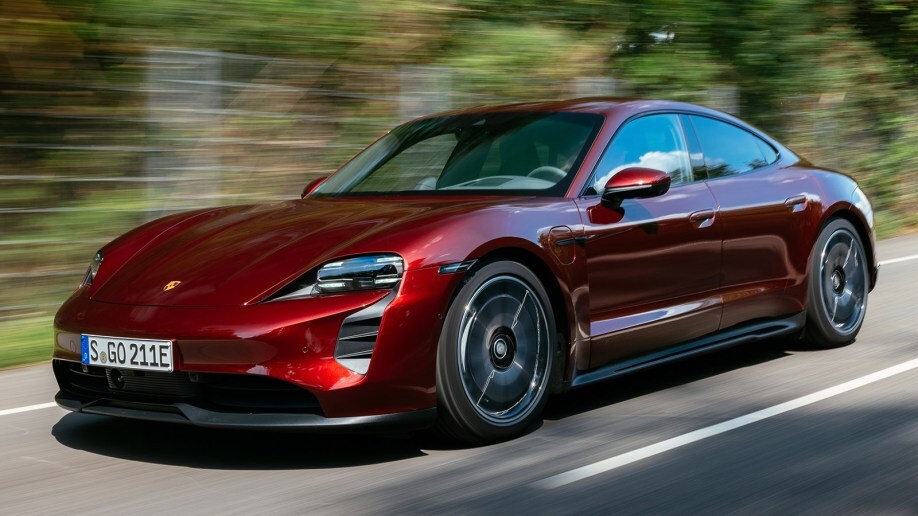Pulse of Information
Your source for the latest insights and updates.
Pushing the Limits: A Drive into Speed
Discover the thrill of speed! Join us as we push the limits and explore the world of adrenaline-fueled driving and racing experiences.
Exploring the Physics of Speed: What Makes Fast Vehicles Go Faster?
Speed is a fascinating aspect of physics that plays a crucial role in the performance of fast vehicles. At its core, speed can be defined as the distance traveled over a specific time period. To achieve higher speeds, vehicles must overcome several physical forces, including drag, friction, and gravity. Aerodynamics is a critical factor; by minimizing drag through streamlined designs, vehicles can move more efficiently through air. Similarly, advancements in tire technology help reduce friction between the tires and the road, allowing vehicles to maintain traction while maximizing speed.
Another essential concept in understanding vehicle speed is power-to-weight ratio. This ratio is determined by dividing the engine's power output by the vehicle's weight. A higher ratio indicates a faster vehicle, as it can accelerate more swiftly. Additionally, vehicle performance can be enhanced through engineering innovations such as turbocharging and supercharging, which increase engine power without adding significant weight. The interplay of these factors demonstrates the complex physics behind speed and the continuous quest for faster, more efficient vehicles.

Top 10 Fastest Cars in the World: Speed Demons of 2023
In the world of automotive engineering, speed enthusiasts eagerly await each year's unveiling of the fastest cars. As we dive into 2023, the competition is fiercer than ever, showcasing a blend of cutting-edge technology and powerful performance. From electric hypercars to traditional combustion engines, this year's lineup promises to satisfy even the most demanding speed demons. Below are the top 10 fastest cars in the world for 2023:
- Bugatti Chiron Super Sport 300+ - Reigning supreme with a top speed of 304 mph, this beauty marries luxury with extreme velocity.
- SSC Tuatara - Known for its bold design and a staggering 282.9 mph record, the Tuatara is a true marvel of modern engineering.
- Koenigsegg Jesko Absolut - Claiming its place with a rumored max speed of 330 mph, this Swedish powerhouse pushes the limits of automotive performance.
- Hennessey Venom F5 - Touted to hit 301 mph, the Venom F5 combines expert craftsmanship with raw speed.
- Rimac Nevera - This electric wonder reaches an astounding 258 mph, showcasing the potential of EV technology.
- Bugatti Bolide - A lightweight track-focused hypercar, it promises speeds exceeding 310 mph.
- Aston Martin Valkyrie - Combining F1 technology with everyday drivability, it touches 250 mph.
- McLaren Speedtail - This hybrid marvel accelerates up to 250 mph while offering a glimpse of the future.
- Pininfarina Battista - An electrifying performance car, it boasts a top speed of 218 mph.
- Lotus Evija - With an impressive output, the Evija reaches speeds of 200 mph, marking Lotus's entry into the hypercar league.
The Future of Speed: How Technology is Revolutionizing Automotive Performance
As we look towards the future of speed, it is clear that advancements in technology are playing a pivotal role in redefining automotive performance. The integration of electric powertrains is one of the most significant developments, allowing vehicles to deliver instant torque and improved acceleration. In addition, the rise of advanced materials, such as carbon fiber and lightweight alloys, enables manufacturers to create faster and more agile cars without sacrificing safety or durability. Artificial Intelligence also contributes to this revolution, optimizing engine performance and enhancing vehicle dynamics through real-time data analysis.
Moreover, autonomous driving technology is set to complement the future of speed by ensuring that vehicles can navigate at higher speeds with unprecedented precision and safety. Features such as adaptive cruise control and lane-keeping assistance are becoming standard, allowing drivers to experience a seamless driving experience even at elevated speeds. In this rapidly evolving landscape, it is essential for industry stakeholders to focus on innovation while addressing sustainability concerns, thus aligning performance with eco-friendly practices. The future of speed is not just about going faster; it’s about creating a smarter, safer, and more sustainable driving experience.